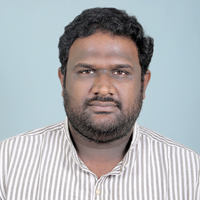

"New Zealand has great schools." "New Zealand is not crowded." "New Zealand is not too expensive." "New Zealand is a friendly country." "New Zealand has great beaches." "New Zealand has great diving" "New Zealand has great skiing" and "New Zealand is clean and green".
To the core, New Zealand's education system focuses on teaching students to solve problems, absorb, analyse and apply information, to work with others to create and innovate. The system supports free thinking, flexibility and helps to build self-esteem. The faculty encourages students to be confident, connected and actively involved.
Its a beautiful, clean country with so much fresh air and heaps of places to visit. Its a beautiful place, with so many open green spaces. Its like living in an oil painting. The teachers here are great; they really care, and you can ask them anything. The teachers are really supportive, and there is a big community of international students, especially Indians.
* A country of open, welcoming people, a place of warmth and hospitality
* One of the cleanest country in the world. (Great air & water quality)
* A safe place with relatively low-crime rate. (Health & safety)
* English speaking country with huge Indian population
* Country known for breathtaking landscapes and natural beauty
* Tertiary education is well-known across the globe
* Students are allowed to work part-time for 20 hours a week*
* The adult minimum wage is NZ $22.70 cents an hour*
* Stay back for international students is upto max 3 years*
* Immigrant friendly and student visa is a pathway to residency*
International students choose to study at either private training establishments (PTEs), institutes of technology and polytechnics (ITPs), or universities that offer programmes that are typically classified into levels.
* Level 5 Diploma: 1 year (+2 students with IELTS of 5.5 bands with no band less than 5.0)*
* Level 6 Diploma: 2 years (+2 students with IELTS of 6 bands with no band less than 5.5)*
* Level 7 Bachelors: 3 years (plus 2 students with IELTS of 6 bands with no band less than 5.5)*.
* Level 7 Graduate Diploma: 1 year (graduation with IELTS of 6 bands with no less than 5.5)*.
* Level 8 PG Diploma: 1 year (graduation with IELTS of 6.5 bands with no less than 6)*.
* Level 9 Masters: 1 or 2 years (graduation with IELTS of 6.5 bands with no less than 6)*.
* Level 10 PhD: 3 to 5 years (graduation with research experience and IELTS is not a must)*
* Academics: Class 10, Class 12, Bachelors (year wise, provisional, and consolidated)
* Employment: If any, conclusive evidence of employment like an offer letter, pay slips, bank statements with salary credits, Form 16, ITR, PF statement, appraisal letters, and relieving letters, if not working at the time of application.
* Language proficiency: Acceptable language proficiency tests are IELTS (academic), TOEFL (pBT and iBT), CAE, and PTE (academic).
* CV/Resume: The most updated one, not leaving any gaps. Mention an internship or any work experience.
* Recommendation letters: Universities typically ask for LORs, and they have to be usually from two professors who taught you; if you have any work experience, then ideally one from a professor and one from your employer.
* SOP (Statement of Purpose): Universities typically ask for this or else when you are switching your subject of study. A SOP should ideally include how the chosen programme and the learning outcomes aligned with existing qualifications and work experience help the student achieve his or her career goals or aspirations in India after graduating from New Zealand.
New Zealand has one of the highest minimum wages in the world, and that helps international students immensely to work, gain experience in New Zealand, socialize, gain cultural acclimatization, and support their rent, food, and other expenses while studying. Effective April 1, 2023, the national minimum wage for adults is NZ$22.70 per hour. International students may work up to 20 hours per week while on study visas, and during study or academic breaks they may choose to work full-time, which is typically 40 hours per week.
Leave Comments